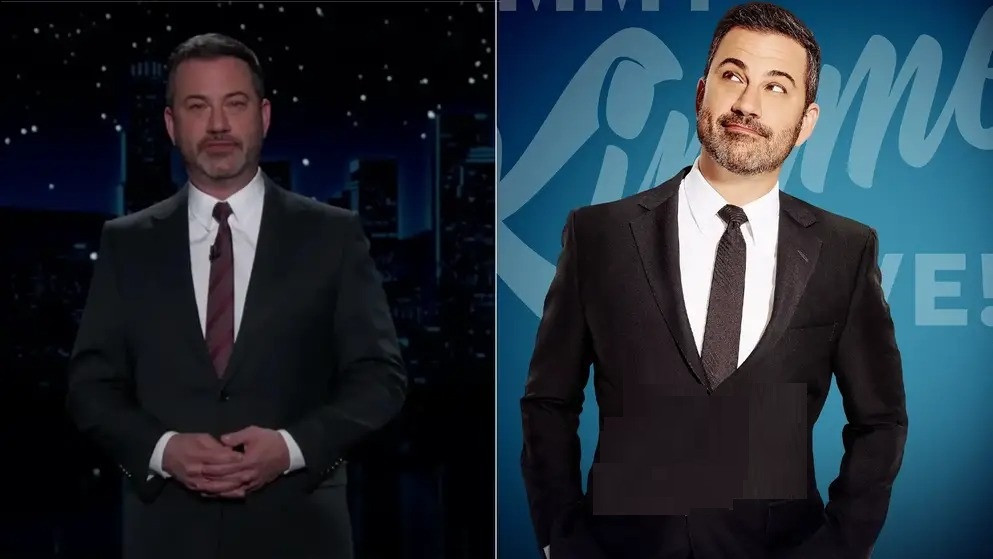
In a surprising move that has reverberated throughout the entertainment world, ABC has concluded its longstanding association with Jimmy Kimmel, effectively canceling his late-night show, “Jimmy Kimmel Live!” After nearly two decades of delivering late-night humor, celebrity interviews, and comedic sketches, the network has opted to discontinue the program, attributing it to a decline in viewership and a shift in the network’s strategic direction. This decision, announced early Tuesday morning, has left both fans and critics astonished.
Jimmy Kimmel, a fixture in American late-night television since 2003, has been recognized for his quick wit, satirical humor, and ability to navigate the delicate balance between comedy and controversy. However, according to ABC executives, it seems that Kimmel’s style of humor no longer aligns with the network’s future vision. In a press release, the network stated, “After careful consideration, we have decided to move in a different direction. We appreciate Jimmy’s contributions to ABC and wish him the best in his future endeavors.”
The news has triggered a range of responses across the political and cultural spectrum. Critics, particularly those with conservative views, have long accused Kimmel of having a liberal bias, contending that his political commentary alienates a significant portion of the American audience. Kimmel’s monologues, often critical of conservative politicians and policies, have made him a divisive figure, admired by some for his outspokenness but criticized by others who perceive it as partisan commentary disguised as entertainment.
In recent years, late-night television has undergone a significant transformation, shifting from universally appealing comedy to more political commentary and advocacy. Kimmel has been at the forefront of this change, using his platform to address issues like healthcare, gun control, and immigration. While these segments have earned praise, they have also contributed to a sense of divisiveness, prompting some viewers to seek less politically charged entertainment.
The decision to cancel “Jimmy Kimmel Live!” raises questions about the future of late-night television and the role of comedians in public discourse. Comedians like Kimmel have demonstrated the power of humor in addressing societal issues, but the blending of comedy and politics risks alienating viewers seeking an escape from political content.
ABC’s move to sever ties with Kimmel may reflect a broader industry trend toward depoliticizing late-night television. As networks grapple with declining viewership, the pressure to appeal to a wider audience and avoid controversy has intensified. The cancellation of “Jimmy Kimmel Live!” could be seen as a strategic effort to recalibrate the network’s programming and attract viewers who felt marginalized by the show’s political content.
The repercussions of ABC’s decision are likely to be significant. For Kimmel, the cancellation signifies the end of an era and an uncertain future. While his talent is undeniable, navigating an environment intolerant of political divisiveness poses a considerable challenge. For ABC, filling the void left by “Jimmy Kimmel Live!” requires striking a balance between entertainment and engagement, humor and seriousness, resonating with a broad cross-section of the American public.
For the audience, the end of “Jimmy Kimmel Live!” signals a pivotal moment in late-night television. In an era where entertainment and politics are intertwined, the demand for purely comedic content, free from partisan debate, may be growing. Whether other networks and comedians will follow ABC’s lead remains to be seen, but the cancellation underscores the thin line between funny and serious in the pursuit of laughs.
In conclusion, ABC’s decision to terminate Jimmy Kimmel and cancel his late-night show reflects more than the conclusion of a TV program; it mirrors the evolving dynamics within the entertainment industry and society. As the aftermath settles, the legacy of “Jimmy Kimmel Live!” and its impact on American late-night television will continue to be debated. What remains evident is that in a divided nation, the comedian’s role as both entertainer and commentator is riddled with challenges, and the quest for a formula that unites rather than divides persists.

Leave a Reply